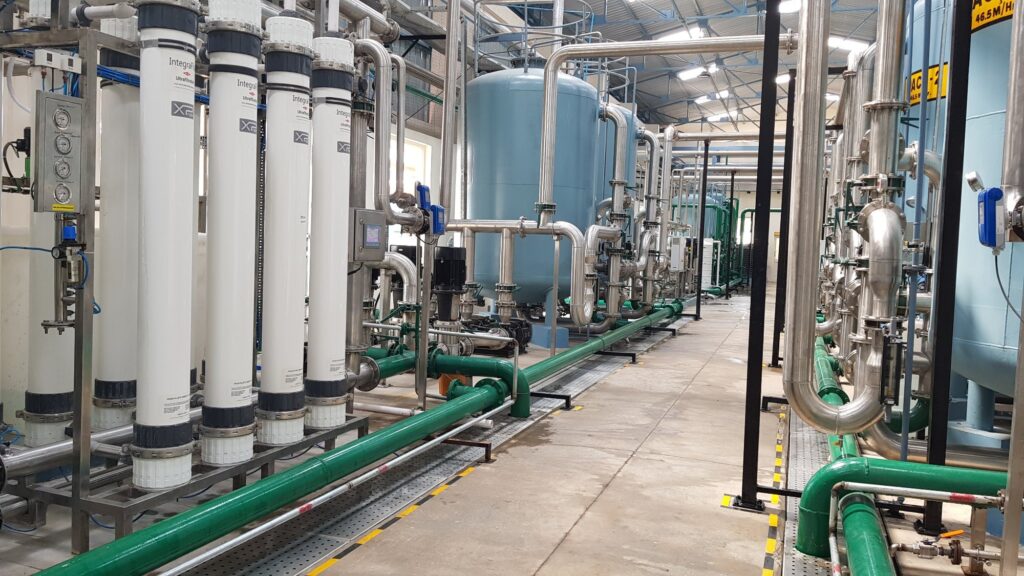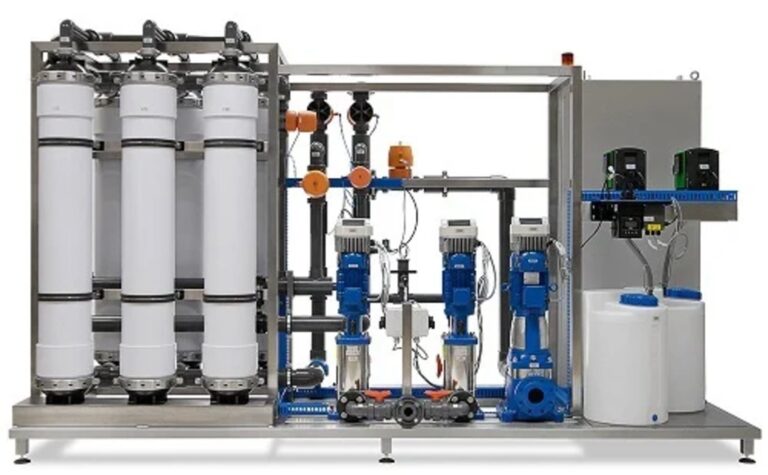“If you define the problem correctly, you almost have the solution.”
– Steve jobs
Ultra-filtration (UF) is a type of membrane filtration in which
hydrostatic pressure forces a liquid against a semipermeable membrane. A
semipermeable membrane is a thin layer of material capable of
separating substances when a driving force is applied across the
membrane. Once considered a viable technology only for desalination,
membrane processes are increasingly employed to remove bacteria and
other microorganisms, particulate material, and natural organic
material, which can impart color, tastes, and odors to the water and
react with disinfectants to form disinfection byproducts (DBP). As
advancements are made in membrane production and module design, capital
and operating costs continue to decline . The ultrafiltration membrane
only allows the solvent (such as water molecules), inorganic salts and
small molecular organic substances in the solution to pass through, and
the macromolecular substances such as suspended matter, colloid, protein
and microorganisms in the solution are intercepted,thereby
achieving the purpose of purification and separation in ultra filtration
plant application.

The advantage of ultra filtration plant:
1. The equipment has high filtration efficiency and good effect.
2.
The system of ultra filtration plant has low energy consumption and
short production cycle. Compared with traditional process equipment, the
equipment has low operating cost, which can effectively reduce
production costs and improve economic benefits.
3. The system has
advanced process design, high degree of integration, compact structure,
small floor space, easy operation and maintenance, and low labor
intensity.
4. The control system of ultra filtration plant can be
personalized according to the user’s specific requirements, combined
with advanced control software, on-line centralized monitoring of
important process operating parameters, to avoid manual misoperation,
multi-faceted to ensure long-term stable operation of the system.
